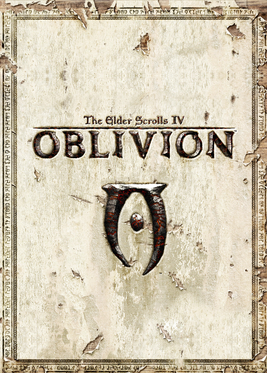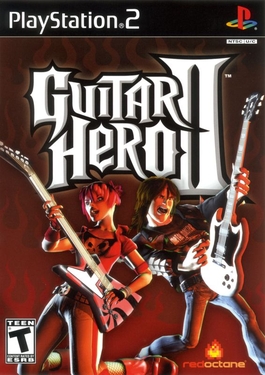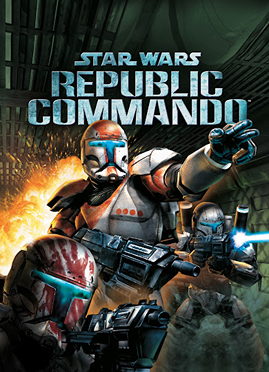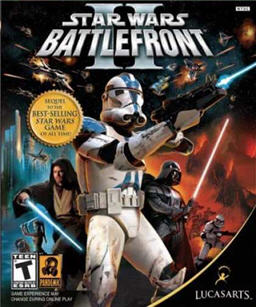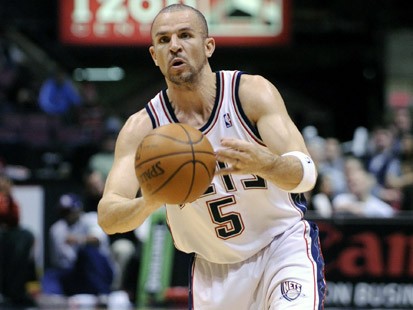BioShock
Release Date: August 21, 2007.
Platform: 360 (PS3 in 2008)
ESRB Rating: M
Developer/Publisher: 2k Boston/2k Games
GameRankings: 95%
Completely Arbitrary Personal Score: 9.1/10 (Great)
As far as the "Games as Art" discussion goes, you probably agree with me, unless you're Roger Ebert (in which case, hello, Mr. Ebert! How are you? Thanks for reading!). Games are just as viable an art form as any other medium, albeit an art form still in its infancy, trying to figure out what works and what doesn't, working out its more sophomoric elements. This has defined the past 15 years in gaming as much as anything else, and seems to be the one hurdle games will need to clear in order to be recognized by the arts (not necessarily by the public, as "art" is rarely a major selling point).
There will come a time when BioShock is recognized as a turning point in that struggle. Set in an underwater objectivist dystopia, BioShock is as much "Atlas Shrugged" as it is "Doom." Creepy, atmospheric and sometimes downright chilling, BioShock's world design set a new standard in attention to detail. Unfortunately, for me, that is where its brilliance ends. While by no means a boring game, the gameplay left something to be desired, at least compared to more polished shooters, and the plotline itself was merely average, with perhaps a few standard moments ("Would You Kindly go up to Ryan's office, and kill the son of a bitch?"). It really came to the point where finding audio tapes, piecing together Rapture's fall and exploring the breathtaking views of the North Atlantic ocean floor were more entertaining to me that anything to do with Fontaine or Ryan.
Halo 3
Release Date: September 25, 2007.
Platform: Xbox 360
ESRB Rating: M
Developer/Publisher: Bungie/Microsoft
GameRankings: 93.53%
Completely Arbitrary Personal Score: 9.3/10 (Great)
The end of the original Halo trilogy (I say that because the upcoming Halo 4 is meant to be the beginning of a second trilogy) was, honestly, shorter than I anticipated. But it, at least, was a full game (ahem, Halo 2). A full game that brought up a lot of themes and situations first brought up in the first game full circle, themes that were, for the most part, neglected in the still stellar second game. It stands as the culmination of Bungie's vision for the series, a vision of a vast, vehicular space odyssey represented by the Covenant combined with the personal, almost claustrophobic horror of the Flood (who were finally a significantly less annoying foe).
The multiplayer was, to this date, the best multiplayer yet seen in one of the genre's most influential games. Halo 3 might not be the best Halo game, but it's certainly the most Halo-like, and still stands as one of the landmark games in the medium.
Half-Life 2: Episode Two/Portal/Team Fortress 2 (The Orange Box)
Release Date: October 10, 2007.
Platform: PC/360
ESRB Rating: M/T/M
Developer/Publisher: Valve
GameRankings: 90%/89.15%/92%
Completely Arbitrary Personal Score: 9.3/9.5/9.0 out of 10 (Great, on all counts)
I'm going to say this in no uncertain terms: The Orange Box is, to this point, the best deal in the history of videogaming. It's not even close. Not only do you get the three games listed in the description, but also the original Half-Life 2, updated for the 360, and the first sequel episode. Both of them have been detailed in this countdown before, so I won't spend any more time on them, suffice it to say both are worth playing an buying, not to mention the other games.
And make no mistake, those other games are all worthy of being on this list on their own. I just figured I should put them together for brevity's sake. I'll talk about them on their own, here, one by one.
First off is the most recent (grrr) game in the Half-Life series, Episode Two. A bigger, more diverse game than its direct predecessor, Episode Two ends on a cliffhange that is still just as affecting as it was in 2007, and takes the series in direction almost unthinkable based on the ending of the original HL2. The (then) three year old Source engine still looked magnificent.
Next we have Portal, which was, more or less, an experiment for Valve. Based off a student game called Narbacular Drop, Portal is, at its core, a physics simulator, albeit an extremely fun and funny one. Laced with a sense of dark humor the likes of which have rarely been seen in anything outside Monty Python. There's not a whole I can say about Portal that wouldn't spoil it for you if you haven't played it, aside for the fact that it is unlike anything that came before it. A sublimely unique experience.
And Team Fortress 2? Well, that's nothing but a hat simulator. Wish people still played it on the 360, though.
Call of Duty 4: Modern Warfare
Release Date: November 5, 2007.
Platform: PC/360/PS3
ESRB Rating: M
Developer/Publisher: Infinity Ward/Activision
GameRankings: 94%
Completely Arbitrary Personal Score: 8.3/10 (Good)
And here we have the first entry in the world's most popular gaming franchise. Which is actually the sixth (or so) entry in another of the world's most popular gaming franchises. A franchise I'm willing to bet at least 60% of current CoD fans have never played. Oh, who am I kidding? 60% of CoD fans have never even played the campaigns for the Modern Warfare games.
Modern Brofare fans aside, this was a solid shooter, full on intensity and the kind of historical attention to detail most military shooters can't even dream of. Good game, but pretty easily the worst of the good games this year, for me.
Mass Effect
Release Date: November 20, 2007.
Platform: 360/PC
ESRB Rating: M
Developer/Publisher: BioWare/Microsoft
GameRankings: 91.15%
Completely Arbitrary Personal Score: 9.2/10 (Great)
Ah, Mass Effect. Aside from Jade Empire (which, as I've covered, is a woefully overlooked game), Mass Effect was the first new IP from BioWare in quite some time, and they delivered magnificently. Set in a sort of amalgamate sci-fi universe, Mass Effect touches upon every good sci-fi cliche there is (and, to be fair, a few bad ones as well). Like most everything BioWare does, it's extremely well-written and paced, and features a plethora of interesting characters for the player to interact with and difficult moral quandaries from which the player must extricate themselves, all of which is supported by top flight voice acting (looking at you, Brandon Keener).
And, like all BioWare games, it's a game world that is believable as more than just an arena to shoot things in. It's a complex and intricate society, with its own history of prejudices and hopes and fears. Learning about these things (primarily though the wonderful Codex entries) is a significant part of the game's brilliance. But more than that, it's a remarkably interesting universe to look at and, eventually, explore. The galactic exploration system was nothing short of breathtaking upon first playthrough, and it never really gets old. The great vacuum of space has never looked so interesting.




